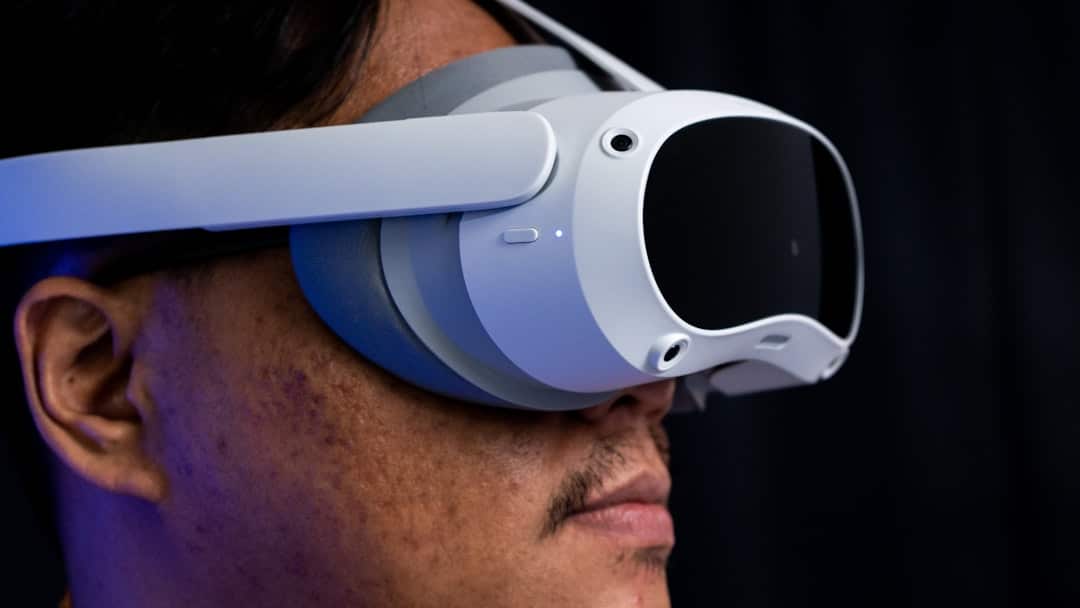The retail landscape has undergone a seismic shift in recent years, driven largely by the advent of cloud technology. As retailers grapple with the complexities of modern consumer behavior, the need for agile, scalable, and efficient operational frameworks has never been more pressing. Cloud innovation has emerged as a pivotal solution, enabling retailers to harness data, streamline processes, and enhance customer engagement.
This transformation is not merely about adopting new technologies; it represents a fundamental rethinking of how retail businesses operate, interact with customers, and respond to market dynamics. Cloud innovation encompasses a range of technologies and services, including cloud computing, data analytics, artificial intelligence (AI), and the Internet of Things (IoT). These tools empower retailers to optimize their supply chains, personalize marketing efforts, and improve inventory management.
By leveraging cloud-based solutions, retailers can access real-time data and insights that inform decision-making and strategy. This shift towards a cloud-centric approach is not just a trend; it is a necessary evolution in an industry that must adapt to rapid changes in consumer expectations and technological advancements.
Key Takeaways
- Cloud innovation is transforming retail by enabling scalable and flexible operations.
- Retailers face challenges like data management and integration when scaling with cloud technology.
- Case studies show successful cloud adoption leads to improved efficiency and agility.
- Cloud innovation enhances customer experience through personalized services and faster response times.
- Future retail trends include AI integration and advanced analytics powered by cloud platforms.
Challenges Faced by Retailers in Scaling Operations
Despite the clear advantages of cloud innovation, many retailers encounter significant challenges when attempting to scale their operations. One of the primary hurdles is the integration of legacy systems with new cloud-based solutions. Many retailers have invested heavily in traditional IT infrastructures that may not easily interface with modern cloud applications.
This can lead to data silos, inefficiencies, and increased operational costs as businesses struggle to unify their systems. Additionally, the rapid pace of technological change can overwhelm retailers who may lack the necessary expertise or resources to implement cloud solutions effectively. The skills gap in the workforce is a critical issue; many employees may not be familiar with cloud technologies or data analytics tools.
This lack of knowledge can hinder the adoption process and prevent retailers from fully realizing the benefits of cloud innovation. Furthermore, concerns about data security and compliance with regulations such as GDPR can create apprehension among retailers considering a transition to cloud-based systems.
Case Study: Retailer’s Journey to Cloud Innovation

To illustrate the transformative power of cloud innovation in retail, consider the case of a mid-sized apparel retailer that faced declining sales and increasing competition from e-commerce giants.
The first step involved migrating its inventory management system to a cloud-based platform, allowing for real-time tracking of stock levels across multiple locations.
As part of this transition, the retailer also implemented advanced analytics tools that provided insights into customer purchasing patterns and preferences. By analyzing this data, the retailer was able to tailor its marketing strategies and optimize product assortments based on regional demand. The results were remarkable: within six months, the retailer reported a 20% increase in sales and a significant reduction in excess inventory.
This case exemplifies how cloud innovation can drive operational efficiency and enhance competitiveness in a challenging retail environment.
Benefits of Cloud Innovation for Retailers
The benefits of cloud innovation for retailers are manifold and extend beyond mere operational efficiency. One of the most significant advantages is the ability to scale resources up or down based on demand fluctuations. This elasticity allows retailers to respond swiftly to seasonal trends or unexpected market changes without incurring excessive costs associated with maintaining physical infrastructure.
Moreover, cloud innovation facilitates enhanced collaboration among teams and departments. With centralized data storage and access to real-time information, employees can work more effectively across functions, breaking down silos that often hinder communication and decision-making. This collaborative environment fosters innovation and agility, enabling retailers to experiment with new ideas and quickly pivot strategies as needed.
Another critical benefit is improved customer engagement through personalized experiences. Cloud-based customer relationship management (CRM) systems enable retailers to gather and analyze customer data from various touchpoints, allowing for targeted marketing campaigns and tailored product recommendations. This level of personalization not only enhances customer satisfaction but also drives loyalty and repeat business.
Strategies for Successful Implementation of Cloud Innovation in Retail
Implementing cloud innovation successfully requires a strategic approach that encompasses several key elements. First and foremost, retailers must conduct a thorough assessment of their current IT infrastructure and identify areas where cloud solutions can provide the most value. This assessment should include an analysis of existing systems, data management practices, and employee skill sets.
Once potential areas for improvement are identified, retailers should develop a clear roadmap for implementation. This roadmap should outline specific goals, timelines, and resource allocations necessary for a successful transition to cloud-based systems. Engaging stakeholders from various departments early in the process is crucial to ensure buy-in and support throughout the organization.
Training and upskilling employees is another vital component of successful implementation. Retailers should invest in comprehensive training programs that equip staff with the knowledge and skills needed to leverage new technologies effectively. This investment not only enhances employee confidence but also maximizes the return on investment in cloud solutions.
Impact of Cloud Innovation on Customer Experience

The impact of cloud innovation on customer experience is profound and multifaceted. One of the most significant changes is the ability to provide seamless omnichannel experiences. With cloud technology, retailers can integrate online and offline channels, allowing customers to interact with brands in ways that suit their preferences.
For instance, customers can browse products online, check availability at local stores, and choose between home delivery or in-store pickup—all facilitated by cloud-based systems. Additionally, cloud innovation enables retailers to respond more effectively to customer inquiries and issues. With access to centralized customer data, support teams can provide personalized assistance based on previous interactions and purchase history.
This level of service not only enhances customer satisfaction but also builds trust and loyalty over time. Furthermore, cloud technology allows for real-time feedback collection through various channels such as social media, surveys, and website interactions. Retailers can analyze this feedback promptly to make necessary adjustments to their offerings or services.
By actively listening to customers and adapting based on their input, retailers can create a more engaging shopping experience that resonates with their target audience.
Future Trends in Cloud Innovation for Retailers
As technology continues to evolve, several trends are emerging that will shape the future of cloud innovation in retail. One notable trend is the increasing integration of artificial intelligence (AI) with cloud solutions. AI-powered analytics tools will enable retailers to gain deeper insights into consumer behavior, predict trends more accurately, and automate various processes such as inventory management and customer service.
Another trend is the rise of edge computing in retail environments. As IoT devices proliferate within stores—such as smart shelves and connected point-of-sale systems—edge computing will allow for faster data processing at the source rather than relying solely on centralized cloud servers. This will enhance real-time decision-making capabilities and improve operational efficiency.
Moreover, sustainability will play an increasingly important role in cloud innovation for retailers. As consumers become more environmentally conscious, retailers will seek cloud solutions that minimize their carbon footprint through energy-efficient data centers and sustainable practices. This focus on sustainability will not only meet consumer expectations but also align with broader corporate social responsibility goals.
The Future of Retail with Cloud Innovation
The future of retail is undeniably intertwined with cloud innovation as businesses strive to adapt to an ever-changing landscape characterized by technological advancements and shifting consumer preferences. Retailers that embrace cloud technology will find themselves better equipped to navigate challenges while capitalizing on new opportunities for growth. The ability to leverage real-time data insights, enhance customer experiences, and streamline operations will be critical differentiators in an increasingly competitive market.
As we look ahead, it is clear that those who invest in cloud innovation today will be well-positioned for success tomorrow. The journey may be fraught with challenges; however, the potential rewards—ranging from improved operational efficiency to enhanced customer loyalty—are substantial. In this dynamic environment, retailers must remain agile and forward-thinking, continually exploring how cloud technology can drive their business strategies into the future.
In the context of retailers leveraging cloud innovation to scale their operations, it’s interesting to explore how technology impacts various industries. For instance, the article on the best software for furniture design highlights the importance of cloud-based solutions in enhancing design processes and improving collaboration among teams. This demonstrates that cloud technology is not only beneficial for retail but also plays a crucial role in other sectors, enabling businesses to innovate and adapt to changing market demands.
FAQs
What is the main focus of the case study on retailers scaling with cloud innovation?
The case study focuses on how retailers leverage cloud technology to scale their operations, improve efficiency, and enhance customer experiences.
How does cloud innovation benefit retailers?
Cloud innovation allows retailers to access scalable computing resources, improve data management, enable real-time analytics, and support omnichannel retail strategies, leading to increased agility and cost savings.
What are common challenges retailers face when scaling with cloud technology?
Common challenges include data security concerns, integration with existing systems, managing cloud costs, and ensuring staff are trained to use new cloud-based tools effectively.
Which cloud services are typically used by retailers for scaling their business?
Retailers often use cloud services such as Infrastructure as a Service (IaaS), Platform as a Service (PaaS), Software as a Service (SaaS), data analytics platforms, and AI-powered customer engagement tools.
Can cloud innovation improve the customer experience in retail?
Yes, cloud innovation enables personalized marketing, faster transaction processing, inventory management in real-time, and seamless omnichannel shopping experiences.
Is cloud adoption in retail limited to large enterprises?
No, cloud adoption benefits retailers of all sizes by providing flexible, scalable solutions that can be tailored to specific business needs and budgets.
What role does data analytics play in cloud innovation for retailers?
Data analytics helps retailers gain insights into customer behavior, optimize supply chains, forecast demand, and make data-driven decisions to improve overall business performance.
How do retailers ensure data security when using cloud services?
Retailers implement security best practices such as encryption, access controls, regular audits, compliance with industry standards, and partnering with reputable cloud service providers.
What impact does cloud innovation have on retail supply chain management?
Cloud innovation enhances supply chain visibility, improves inventory accuracy, enables faster response to market changes, and supports collaboration among suppliers and partners.
Are there any examples of successful retailers scaling with cloud innovation?
Yes, many retailers have successfully scaled their operations using cloud technology, resulting in improved operational efficiency, expanded market reach, and enhanced customer satisfaction. Specific examples are often detailed within the case study.

